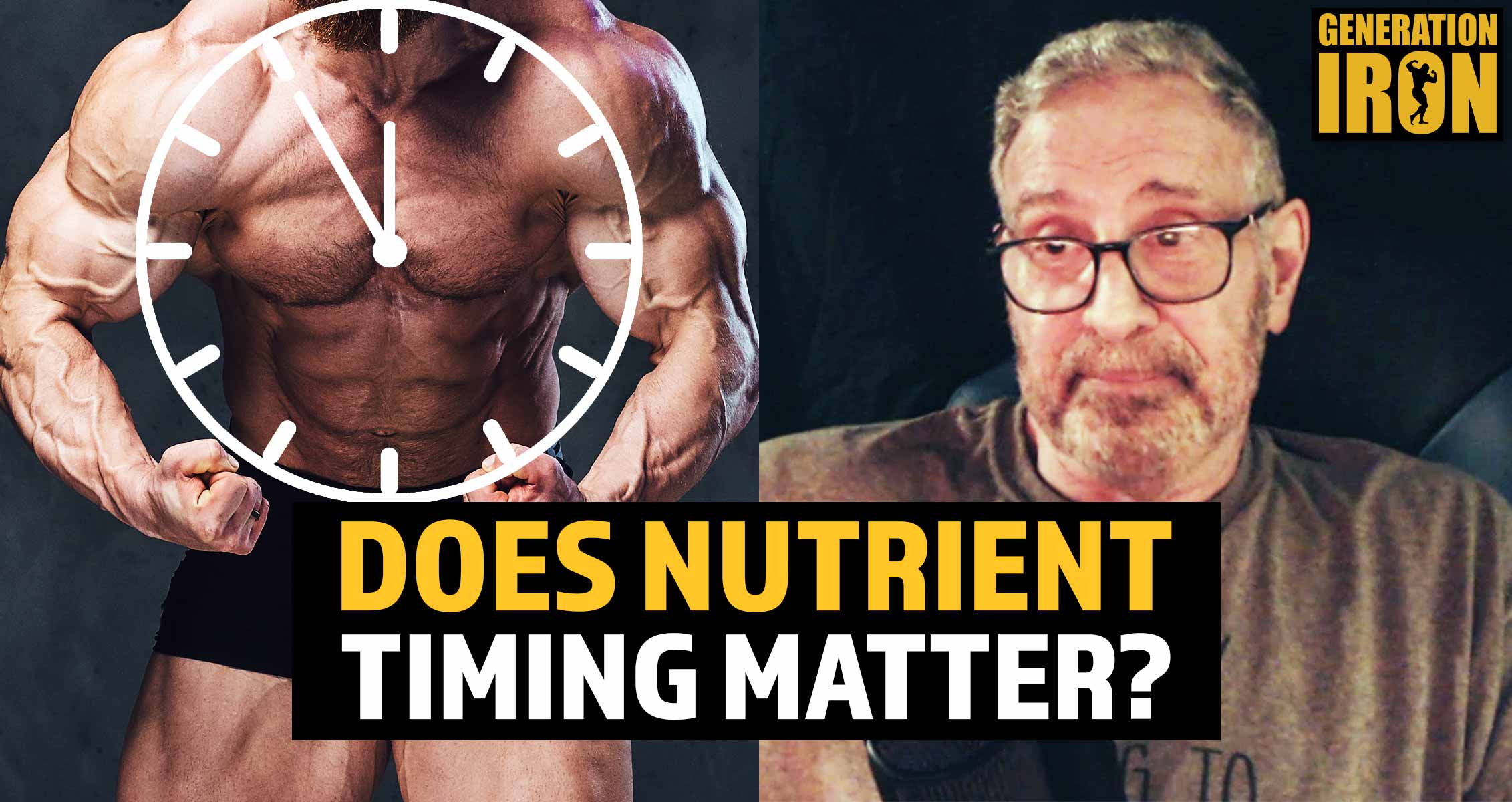Jerry Brainum breaks down the straight facts behind nutrient timing. When does it matter and when is it BS?
It’s generally known that a person’s diet and nutrition are equally, if not more, important than workouts for meeting your physique and fitness goals. What you put in your body directly effects the “fuel” used during workout and recovery. But beyond general diets – there is a concept known as nutrient timing. Does the timing of when you consume certain nutrients and supplements vastly affect the results of our workout? In our latest episode of Straight Facts, Jerry Brainum separates fact from fiction with a complete breakdown of nutrient timing before and after your workout.
We all have limited time in a day. So for those fitness obsessed, it’s important to best optimize a workout to save time and reach goals as fast as possible. In terms of diets and supplementation, this is where the concept of nutrient timing comes in. Can a person perfectly target a window of time for supplementation and nutrition in order to get a boost to their workout? Whether that be more energy, more optimized protein synthesis, or better rest for recovery?
According to Jerry Brainum, the answer is that nutrient timing can help improve the results of your workout – but only slightly. At the end of the day, nutrient timing will not be a make or break aspect for those looking to upgrade their health and physique to the next level. Let’s break it down in detail.
The Two Hour Window: Should You Take Protein Supplements Right After A Workout?
When the fitness community talks about nutrient timing – the most popular consensus is a two hour window before and after your workout. When it comes to consuming protein or protein supplements after a workout – many believe that it’s vital to consume protein within that two hour window to help optimize protein synthesis.
However, according to Jerry Brainum, recent studies show that protein synthesis reaches it’s peak between 24-48 hours after a workout. Essentially this debunks any importance of consuming protein immediately after a workout. So long as you are getting the amount of protein you need every day – your body should be putting it to best use.
On the flip side, it does not hurt to take protein supplements right after a workout. So there is no reason to avoid the two hour nutrient timing window. With science changing and updating all of the time – you can choose to still take protein right after a workout just to be safe.
Carbohydrate Replenishment After A Workout
So we covered protein synthesis after a workout – but what about carbohydrate replenishment? During your workout, your body will use glycogen (from carbs) for energy. Because of this, many fitness enthusiasts would also use the two hour nutrient timing window to restore on carbs.
Jerry Brainum states that while it’s true that glycogen is burned during a workout, resistance training typically does not burn all of your glycogen stores in on session. So can consuming carbs immediately after a workout help? Yes – but only in slightly. It’s not a game changer for your physique, strength, or fitness levels.
However, if you are someone who does long endurance workouts – then carb replenishment after a workout can be vital. Longform exercise and endurance training will typically burn through your entire glycogen stores. So it’s extremely important for someone like a long distance runner to beef up on carbs right after a long training session.
Overall, Jerry Brainum explains that studies have shown that the body has a hierarchy of demands after a workout session. When your body is depleted in glycogen stores after a workout – it will prioritize replenishing glycogen before turning carbs into fat stores in your body. So yes – eating carbohydrates immediately after a workout is effective. How effective depends on the kind of training you are doing.
Nutrient Timing Before A Workout: Things To Consider
So we discussed at length nutrient timing after a workout – but what about before? Typically nutrient timing before a workout comes down to ensuring you have enough energy to put up your best training. A pre-workout supplement or caffeine can be helpful raising energy levels. Typically, caffeine takes about an hour to kick in – so consider this with your nutrient timing before a workout.
On the other hand, caffeine also stays in your system for about six hours. So if you are a night trainer, consider this fact when timing your caffeine intake for a workout. You don’t want to be unable to sleep and recovery later in the night.
Hydration is also extremely important before a workout. While the timing of consuming water comes down to how hydrated you are during the full day – the most important thing to consider is to stay hydrated by the time you train. Studies show that being dehydrated can lead up to a 4% decrease in strength – according to Jerry Brainum.
Wrap Up
So is nutrient timing a magic bullet that will transform your fitness regimen? No, not really. But there are some true valuable aspects to nutrient timing that should be considered. Nothing will be a game changer – but small things can all add up to a better fitness lifestyle. Each individual is different. Whatever ultimately helps you become a more focused and successful person in fitness should not be avoided.
You can watch Jerry Brainum go into complete detail about all aspects of nutrient timing in our latest episode of Straight Facts above. Make sure to check out new episodes every Wednesday. Only on the Generation Iron Fitness Network or where ever podcasts are downloaded.

